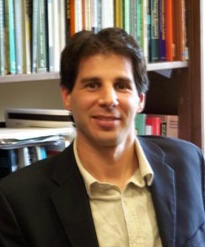Dr. Andrew Biro
ProfessorOffice: BAC 217
Phone: (902) 585-1925
Email: andrew.biro@acadiau.ca
Twitter: @andrewbiro
Blog: andrewbiro.wordpress.com
Office Hours:
EducationPh.D., M.A. (York), B.A. (Toronto) Research/Teaching Interests
Teaching (2024-2025)
|
|
Selected PublicationsBooks 2011. Critical Ecologies: The Frankfurt School and Contemporary Environmental Crises (University of Toronto Press) 2005. Denaturalizing Ecological Politics: ‘Alienation from Nature’ from Rousseau to the Frankfurt School and Beyond (University of Toronto Press) Journal Articles 2015. “The Good Life in the Greenhouse? Autonomy, Democracy, and Citizenship in the Anthropocene," Telos 172: 15-37. 2013. “Screening the Crisis,” Studies in Political Economy 92: 57-74. 2012. “Water Wars by Other Means: Virtual Water and Global Economic Restructuring,” Global Environmental Politics 12(4): 86-103. Reprinted in A. Jagerskog, A. Swain, and J. Ojendal (eds.), Water Security Volume 4: Global Water Crisis and Beyond (Sage, 2014) 2010. “Environmental Prospects in Canada,” Environmental Politics 19(2): 303-309. 2009. “Lost in the Supermarket: The Corporate-Organic Foodscape and the Struggle for Food Democracy,” Antipode 41(3): 509-532. With J. Johnston and N. McKendrick. Chapters 2016. “Human Nature, Non-Human Nature, and Needs: EPT and Critical Theory” in Oxford Handbook of Environmental Political Theory (Oxford University Press), 79-102. 2013. “River-Adaptiveness in a Globalized World” in C. Chen, J. MacLeod, and A. Niemanis, eds., Thinking with Water (McGill-Queens’ University Press), 166-184. 2007. “Adorno and Ecology,” in D. Burke, K. Kiloh, M. Palamarek, and J. Short, eds., Adorno and the Need in Thinking(University of Toronto Press), 345-361. 2006. “Half-Empty or Half-full? Water Politics and the Canadian National Imaginary,” in K. Bakker, ed. Eau Canada: Governing Canada’s Waters (University of British Columbia Press), 321-333. 2002. “The Eighteenth Brumaire of Tony Soprano,” in D. Lavery, ed. This Thing of Ours: Investigating the Sopranos (Wallflower/Columbia University Press), 203-214. With S. Hayward. |
|

